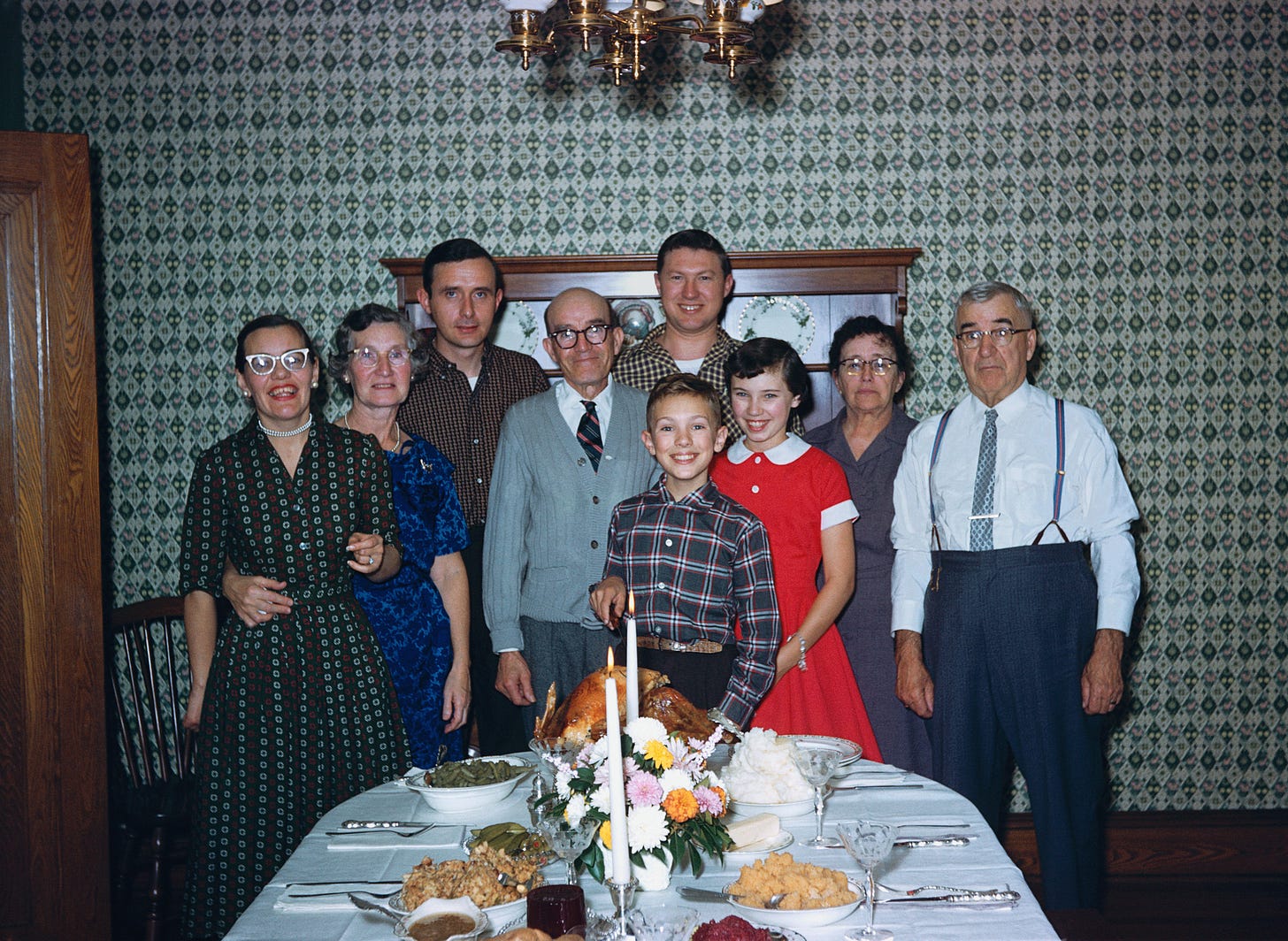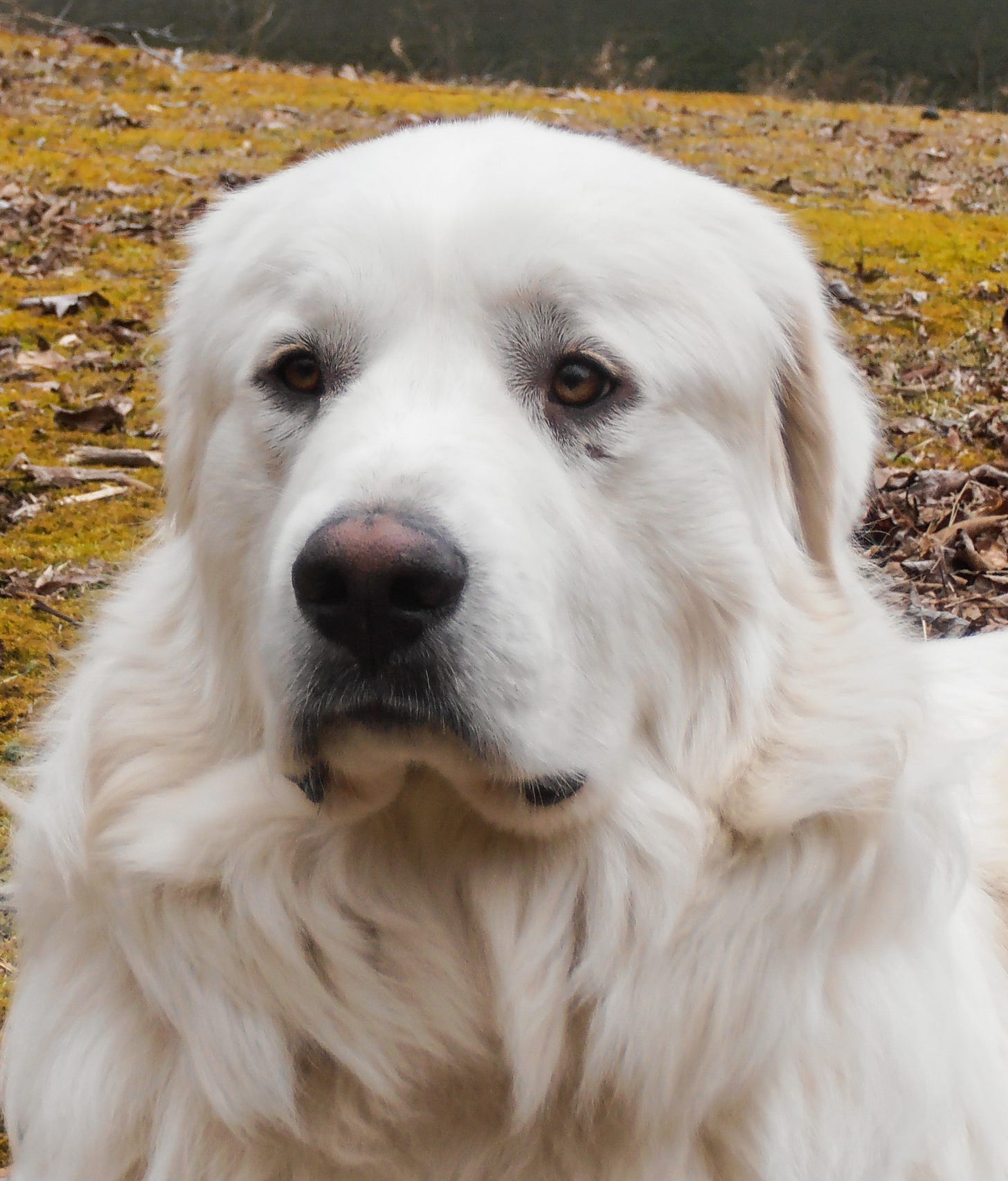Don’t worry, I won’t keep you long. I realize that it’s Thanksgiving, so you’re probably busy doing Thanksgiving things: Brining your turkey. Doing whatever people do with cranberry sauce (lubing their lawnmower blade spindles? I don’t know how anyone eats that stuff). Slipping a blackjack into your festivity trousers in advance, in case dinner talk goes political and you need to take out your sister-in-law.
When I asked my wife what I should write for Thanksgiving, she suggested I make a gratitude list. “What am I now, Oprah?” I said, ungrateful for the suggestion. Then I got to thinking. “I am grateful that I get to lay with you in sin,” I told her, before ticking off several other NC-17 things I was grateful for, which I won’t mention in a family publication. I don’t want to turn your stomach, you picturing your humble scribe performing unspeakable acts of lasciviousness. Especially when you have to find a way to keep down all that cranberry sauce.
But when I had a moment to reflect after my wife put me in time-out, I realized that I am grateful for quite a few things. I’m grateful for not just her and my sons, but for my 11-year-old Great Pyrenees, Solomon. Or maybe he’s 12 or 13, now. Nobody knows for sure. After he was found with burrs caking his thick polar-bear coat, trying to get any motorist in a Tennessee Dollar General parking lot to open the door to him so he could get out of the rain, the vet told us how old he thought he was when we acquired him as a rescue. Solomon never stipulated otherwise.
We’ve gone on near daily walks for the past decade. And while he’s still in great shape, I’m all-too-aware that he’s already in the window of what’s considered his breed’s average lifespan. So when we get back home after yet another excursion, every time I slant his ramp up to the back of the truck, before he tears down it to remind the squirrels who’s boss, Solomon pauses at the top for our customary benediction. I kiss him on the head, and thank him for walking beside me for one more day. Neither of us can know how many of those days we have left. But I’ll keep greedily taking them as long as they’re on offer.
I’m grateful for the bluebirds still dropping in on my bluebird house, even though nesting season is long over. Maybe they just can’t resist the dried mealworms. But I like to think they’re as attached to me as I am to them. I’m grateful for the stripers in the Chesapeake Bay not far from my house. Mind you, I haven’t caught one in over a year, in spots where I used to catch hundreds. I recently read that due to everything from predation to pollution, their population is at a 30-year-low. Which spooks me. But not so much that I won’t once again hit the rock jetties after Thanksgiving, fly rod in hand, throwing Clousers and Deceivers and whatever else I think might restore our communion. Which even when it looks grim, I don’t regard as an act of futility, but as what the Scottish writer John Buchan called fishing: “a perpetual series of occasions for hope.”
I’m grateful for people who maybe don’t have the luxury of feeling gratitude for the many things I have that they might not, like good health. But who, even in their tunnel of darkness, take the time to make me laugh anyway. Like my old pal Colin Fox — the editor of my book — who recently started seeing a spot in his vision, which turned out to be eye cancer. He’s spending Thanksgiving week in a post-surgical recovery room, a metal radiation disc sewn into his eyeball, in order to kill the tumor. But even in his constant discomfort, and unsure of when peace-of-mind will or even can return, he took the time to playfully admonish me, when I sent him something I read that was bad for the soul: “Holy sheep shit. That dude is fucking bonkers. I would definitely cut that cord. Reading too much of that stuff will give you eye cancer.”
I’m grateful that when I run out of things to be grateful for, I can always outsource it to one of my old favorites, Jim Harrison, whose praises I have sung in these pages many times. This is a poem of his called “I Believe.”
I believe in steep drop-offs, the thunderstorm across the lake
in 1949, cold winds, empty swimming pools,
the overgrown path to the creek, raw garlic,
used tires, taverns, saloons, bars, gallons of red wine,
abandoned farmhouses, stunted lilac groves,
gravel roads that end, brush piles, thickets, girls
who haven’t quite gone totally wild, river eddies,
leaky wooden boats, the smell of used engine oil,
turbulent rivers, lakes without cottages lost in the woods,
the primrose growing out of a cow skull, the thousands
of birds I’ve talked to all of my life, the dogs
that talked back, the Chihuahuan ravens that follow
me on long walks. The rattler escaping the cold hose,
the fluttering unknown gods that I nearly see
from the left corner of my blind eye, struggling
to stay alive in a world that grinds them underfoot.
And I’m also grateful for new writers — or new to me — like Ross Gay, whose 2019 The Book of Delights, is indeed one of its own. I picked it up on audio on a whim, and was highly suspicious it would be an exercise in candy-assery. But I just wasn’t ready to plunge into my other audiobook of the moment, Hannah Arendt’s The Origins of Totalitarianism. (I was already in a deep enough funk after the election. I didn’t need any more help from history.)
In his Book of Delights, Gay wrote an essayette nearly every day for a year on the small things he noticed that lifted his spirit, everything from writing by hand to Botan Rice Candy to the joys of loitering. In a short on the sanctity of trains, he noticed how often someone abandons their open bag to go to the restroom or café car, giving themselves over to the unspoken ritual of trusting a stranger with your valuables:
I suppose I could spend time theorizing how it is that people are not bad to each other, but that’s really not the point. The point is that in almost every instance of our lives, our social lives, we are, if we pay attention, in the midst of an almost constant, if subtle, caretaking. Holding open doors. Offering elbows at crosswalks. Letting someone else go first. Helping with the heavy bags. Reaching what’s too high, or what’s been dropped. Pulling someone back to their feet. Stopping at the car wreck, at the struck dog. The alternating merge, also known as the zipper. This caretaking is our default mode and it’s always a lie that convinces us to act or believe otherwise. Always.
And I’m also thankful for readers — particularly you paid ones — who ensure that I don’t have to get a real job, and that we can keep talking to each other. Have a Happy Thanksgiving.
Bonus Tracks: A song that always puts me in the gratitude pocket, Hank Williams doing “Thank God,” a tune that was released posthumously in 1955, a couple years after Hank perished in the back of a Cadillac on his way to a New Year’s gig. But he recorded it in 1948 and 1949 on the Johnny Fair Syrup show in Shreveport.
Or if you prefer more fuzz distortion with your Thanksgiving, here’s the Beastie Boys doing “Gratitude,” which, according to Adam Horovitz (aka “Ad-Rock”) in the Beastie Boys Book that he co-wrote with Mike D/Michael Diamond, and which itself was turned into a Spike Jonze documentary, was about “being thankful for the simple things: love and friendships and life. And dumb little objects that make us human.”




